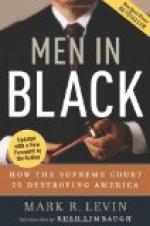As a matter of actual experience, the rich man has a harder time in court than the poor man. The inequality of justice, if there be any, is rather against him. Because he is rich and notorious the public prosecutor cannot let him off. If, for example, a poor man who is undoubtedly insane, commits a murder he is not tried, but is sent to an asylum for the insane. If, after several years, he recovers and is released, nothing is said about it; the public does not know. But let it be a rich lunatic and the public prosecutor is bound to bring him to trial. Public attention demands it. He may know him to be insane, but he must still prosecute him. The jury declare him insane. After years he is released from the asylum, the public thinks it a miscarriage of justice, forgetting in the meanwhile the inconspicuous poor man who unnoticed has gone through the same experience, and been released years ago.
The delays of the law are partly due to the system of courts and partly to the dullness of court procedure. The inefficiency of the system of courts and judicial procedure is shown in the practical workings of the civil courts of New York City. The antiquated organization of all the courts is like a patchwork quilt where each additional one has been added or increased as New York has grown from a village below the Indian stockade at Wall Street to its present size. So that there exist within the city limits now seven different kinds of civil courts and five kinds of criminal courts, in nearly each of which there is a separate set of rules, different customs, and distinct methods of procedure, and of them all the most technical and the most complicated are often those where they should be the most simple and easy of understanding.
Wherever the court may be the surroundings are substantially the same. The scene is laid and the carpenters have left. The spectators have found their places. The stage is empty however, there is a sudden bustle and shifting of feet, a rumor has gone abroad that something is about to happen. The court attendants take their places. One of them straightens up and with a commanding voice cries out: “Gentlemen, please rise. Hear ye, hear ye, all persons having business draw near and ye shall be heard.” Enter his Honor, the Judge.
III
THE JUDGE
With a rustle of his gown and a bow to the court-room the judge takes his seat on the bench. The trivial pleasures of being heralded and having the spectators rise when he enters have lost their charm, but he would feel uncomfortable without them. The gray-haired clerk hands him the list of the cases for the day. The anxious court attendant asks if he shall open a window. The judge sniffs audibly and orders the steam heat to be turned off. The court attendant does so and brings his Honor a glass of water. When the judge sits down in the revolving chair he is on the bench and the court is in session.




